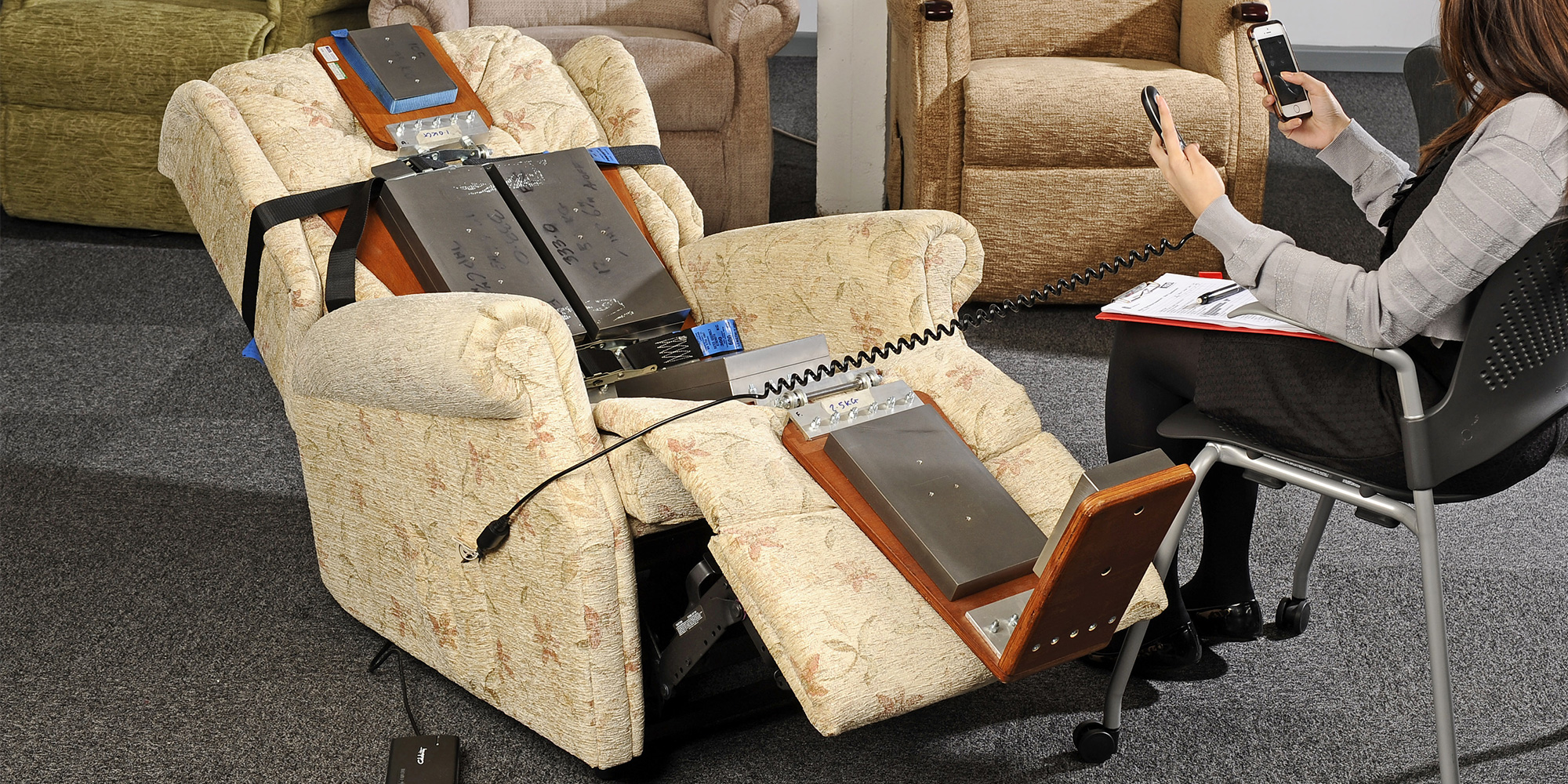BS EN 12721 Resistance to Wet Heat on Adjustable Furniture Surfaces Testing
The BS EN 12721 standard is a critical component of the furniture testing industry, specifically addressing the resistance to wet heat on surfaces of adjustable furniture. This test is essential for ensuring that materials used in recliners and other adjustable furniture withstand exposure to moisture and elevated temperatures without degrading or failing. Compliance with this standard is important for manufacturers aiming to provide durable, safe, and reliable products.
The test involves exposing the surface of an adjustable furniture item to a controlled environment where it is subjected to both heat and humidity. The objective is to simulate real-world conditions that might be encountered during use, such as sitting in a recliner while eating or drinking. This can lead to spills on the upholstery. By following this standard, manufacturers can ensure their products meet performance expectations under these challenging conditions.
The test procedure starts with careful preparation of specimens according to specified dimensions and weight ranges. The specimen is then placed into an environmental chamber where it undergoes exposure to a combination of heat (typically 50°C) and humidity (98% relative humidity). This condition simulates prolonged periods of use in humid environments, such as tropical regions or during the summer months.
After the specified duration of exposure—usually 24 hours—the specimen is removed from the chamber. It undergoes thorough inspection for signs of deterioration, including discoloration, cracking, swelling, and loss of adhesion between layers of material. Any defects are documented meticulously to provide detailed insights into the performance characteristics of the tested materials.
The results of this test play a crucial role in ensuring product quality and safety. Non-compliance can lead to potential hazards such as discomfort during use or even health risks if the materials do not retain their integrity over time. By adhering to these standards, manufacturers demonstrate their commitment to delivering high-quality products that meet both regulatory requirements and consumer expectations.
Given the complexity of modern furniture design, especially adjustable items like recliners, it is imperative for manufacturers to conduct thorough testing at various stages of product development. The BS EN 12721 test helps identify potential issues early in the process, allowing designers and engineers to make necessary adjustments before production begins.
Understanding how materials behave under these conditions also aids in selecting appropriate fabrics, foams, and other components for use in furniture design. Proper selection ensures not only durability but also comfort, which is vital for products like recliners where users spend extended periods of time in a seated position.
Benefits
- Elevates the reputation and trustworthiness of manufacturers by ensuring compliance with international standards.
- Reduces the risk of product liability claims and recalls due to material failures or safety concerns.
- Promotes longer-lasting products, enhancing customer satisfaction and loyalty.
- Aids in achieving regulatory compliance, thereby opening up markets where these standards are required.
- Enhances design freedom by providing data on which materials perform best under specific conditions.
Industry Applications
| Furniture Type | Application |
|---|---|
| Recliners | Ensuring the upholstery remains intact and comfortable despite frequent use in humid environments. |
| Adjustable Beds | Guaranteeing that materials used do not deteriorate over time, especially when exposed to moisture during sleep. |
| Office Chairs | Aiding in the selection of fabrics and foams that can withstand spills and maintain their integrity under heat stress. |
| Massage Furniture | Ensuring durability and reliability for extended use, particularly when materials are exposed to moisture during sessions. |
Customer Impact and Satisfaction
The implementation of BS EN 12721 testing has several positive impacts on customers. Firstly, it enhances the longevity and performance of adjustable furniture products, ensuring that they remain comfortable and functional for longer periods. Secondly, by adhering to this standard, manufacturers can offer warranties with confidence, knowing that their products have been rigorously tested to meet stringent quality benchmarks.
Customers benefit from these efforts through improved product satisfaction. They experience less need for replacement or repair, leading to cost savings in the long run. Additionally, compliance with international standards like BS EN 12721 can open up new market opportunities, allowing customers access to a wider range of high-quality products.
Moreover, the rigorous testing process helps manufacturers address potential safety concerns early on, ensuring that any hazards are mitigated before they become actual issues. This proactive approach not only protects users but also fosters trust between consumers and brands, reinforcing brand loyalty.





